An equiconvex lens is cut into two halves along (i)XOX′ and (ii)YOY′ as shown in the figure. Let f,f′f'' be the focal lengths of the complete lens, of each half in case (i), and of each half in case (ii), respectively
Choose the correct statement from the following
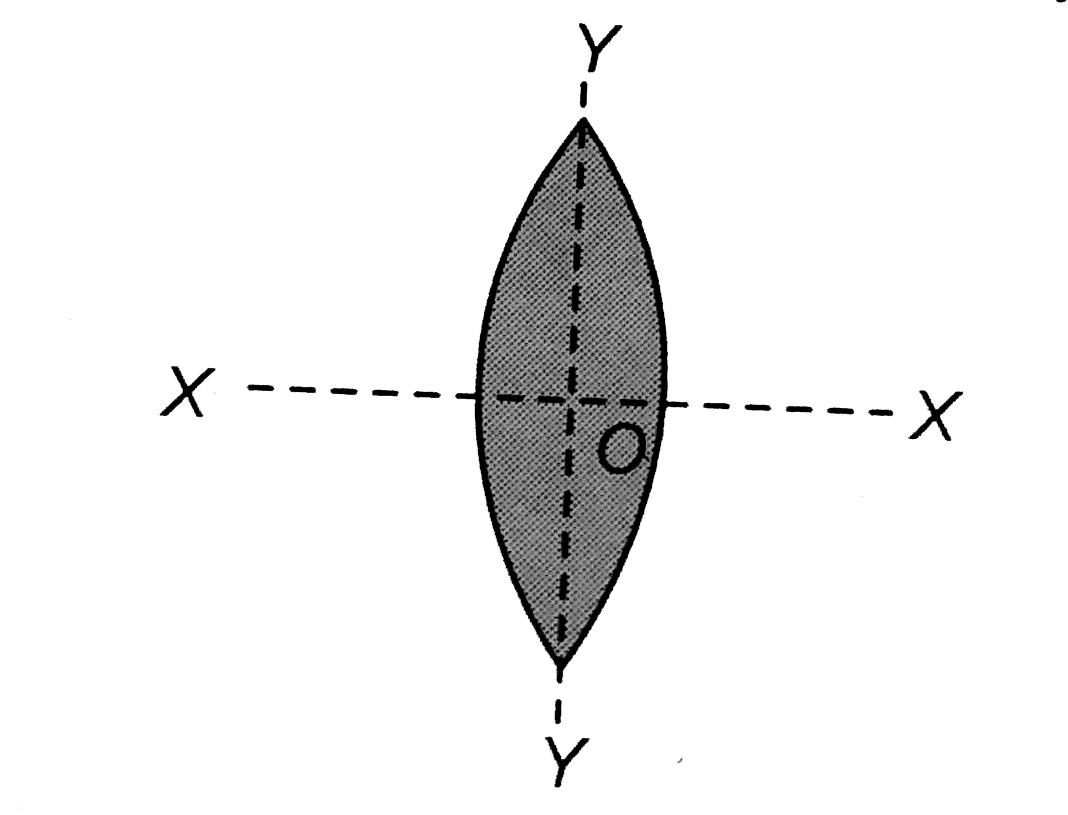
f'=2f,f''=f
f'=f,f''=f
f'=2f,f''=2f
f'=f,f''=2f
The correct Answer is:A

1f=(μ−1)(1R−1−R)=2(μ−1)R
f=R2(μ−1)
1f'=(μ−1)(1∞−1−R)=μ−1R
f'=R(μ−1)
1f''=(μ−1)(1R−1−R)=2(μ−1)R
f=R2(μ−1)
f'=2f,f''=f
Topper's Solved these Questions
- REFRACTION AT SPHERICAL SURFACESBOOK - CP SINGHCHAPTER - REFRACTION AT SPHERICAL SURFACESEXERCISE - EXERCISES
105 Videos
- REFLECTION OF LIGHTBOOK - CP SINGHCHAPTER - REFLECTION OF LIGHTEXERCISE - EXERCISES
67 Videos
- REFRACTION OF LIGHT BY PLANE SURFACESBOOK - CP SINGHCHAPTER - REFRACTION OF LIGHT BY PLANE SURFACESEXERCISE - Exercises
110 Videos
Similar Questions
A equiconcave lens of focal length 15 cm is cut into two equal havles along dotted lines as shown in figure. What will be new focal length of each half.

View SolutionFocal length of a convex lens in air is 25 cm. It is cut into two equal halves along its principal axis. What will be the focal length of each half ?
View Solution
Knowledge Check
If a symmetrical convex lens of focal length 'f is cut into two parts along the principal axis as shown in the figure, the focal length of each part will be:
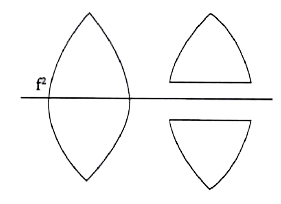 Af2Bf4CfD∞
Af2Bf4CfD∞The focal length of a converting lens are fvandfr for violet and red lights, respectively. Which of the following is correct?
Afv<FrBfv=FrCfv>FrDIt depends on the average refractive indexA convex lens has a focal length f. It is cut into two parts along the dotted line as shown in figure. The focal length of each part will be
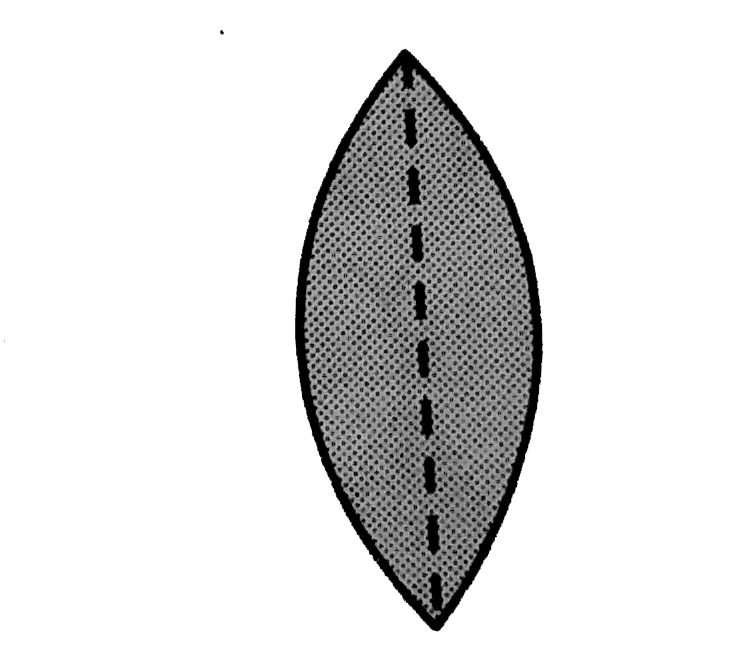 Af2BfC32fD2f
Af2BfC32fD2f
A thin double convex lens of focal length f is broken into two equal halves at the axis. The two halves are combined as shown in figure. What is the focal length of combination in (ii) and (iii).

View SolutionThe figure shows and equiconvex lens of focal length f. It the lens is cut along PQ, the focal length of each half will be

View SolutionA convex lens has a focal length f. It is cut into two parts along the dotted line as shown in figure. The focal length of each part will be

View SolutionThe figure shows an equiconvex lens of focal length f. If the lens is cut along PQ ,the focal length of each half will be
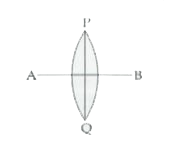
View Solution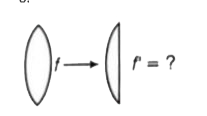
If the bio-convex lens is cut as shown in the figure, the new focal length f' is
View Solution
